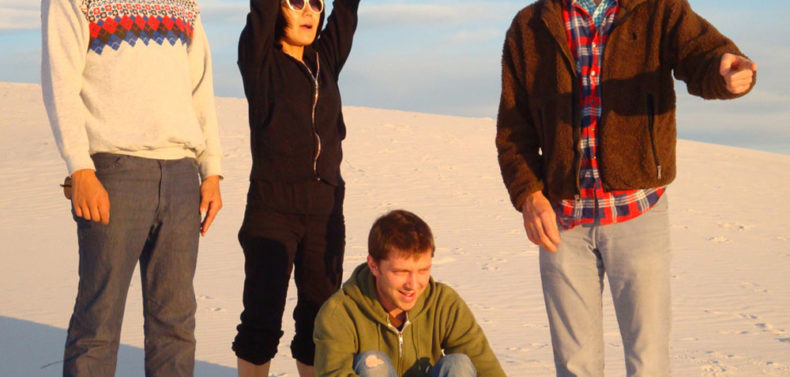The optimal listening situation for certain songs is right after you’ve been dumped. You can’t truly appreciate Thin Lizzy’s “Cowboy Song,” a tune about riding the range without that special someone on a horse beside you, unless you’re riding the range without that special someone on a horse beside you. OK, perhaps you don’t have to be riding a horse, but you must be freshly dumped, and alone, and miserable.
Same with Mariah Carey’s “Always Be My Baby.” It’s an effective, spectacular tune no matter what your relationship status, but unless your heart’s recently been ripped out, stomped on, chopped up and set on fire, you’re never gonna “get it.” When Mariah sings “You’ll always be a part of me,” that part must no longer be, well, a part, in order for you to fully encounter the song’s soul.
Even if your relationship is thriving and perfect, these songs make you want it all to come crashing down. Though they are cloaked in anguish, these are celebratory songs. They transform tragedy into triumph and make suffering from a broken heart an ideal condition—something to aspire to, rather than a nightmare to avoid at all costs.
Breakup Song, Deerhoof’s new album, was inspired by this idea. The spastic, noisy and totally danceable songs on the band’s 11th studio album are designed to turn even a room full of brokenhearted sad saps into a jubilant, fist-pumping fiesta. The catch, of course, is that one must first be dumped in order to then party.
“Humans can take awful situations and transform them into something useful and positive,” explains Deerhoof guitarist John Dieterich. “The idea is that breaking up will be a joyous occasion, taking something that’s normally considered painful—that you deal with alone—and turning it into a community thing that’s about getting together with people and partying. It’s a different way of dealing with pain.”
The bandmembers arrived at this solution after listening to a bunch of popular bands—Dieterich, a gentleman, wouldn’t name names—making oppressively sad music.
“[That] music is intentionally wallowing in misery,” he says. “I’m not passing judgement on those bands, but it’s bad medicine for everyone. Happier feelings are shunned, and not considered appropriate for serious music. We think that’s baloney. It’s actually more challenging to make happy music—at least it is for us. It’s counterintuitive in many respects, and it’s a lot of work, but it’s what we feel the world needs right now. We want to inspire people, not make them sad.”
The album title also speaks to the fact that Deerhoof’s four members no longer live in the same city. While Dieterich lives in Albuquerque, guitarist Ed Rodriguez resides in Portland and both singer/bassist Satomi Matsuzaki and drummer Greg Saunier are in New York City.
It’s not the first album Deerhoof has made since its members scattered across the country, but in many ways, they were even more broken up during Breakup Song; the songs were written and recorded separately, then emailed around among the band until they were finished.
“This is how we did the last album, but it was more extreme this time,” says Dieterich. “It’s kinda liberating to be apart, because it gives you time to refine the ideas until you’re saying exactly what you want to say. It’s hard for me to do that on the spot, working in the same room with people. Sometimes I need to sit and work it out alone.”
Like past albums, on Breakup Song Deerhoof sounds like a band perched on the slippery edge of chaos. The album never plunges completely into madness, but songs like the violently jagged “Bad Kids to the Front” and the convulsing, schizophrenic “To Fly or Not to Fly” come awfully close.
Still, while it often feels as though bandmembers are charging full speed ahead in opposite directions, the music somehow manages to remain bizarrely coherent.
“You’re hearing the tenuous connection between multiple brains,” says Dieterich. “Sometimes there are 20 things we want a song to be, but it can only be one. This band’s never going to run out of ideas. That’s not a fear. The fear is whether we can function as a unit and continue to collaborate, or if we can economically stay afloat. Ever year, I think it might be the last. I don’t want it to ever be.”
If Deerhoof ever does break up, at least it’ll be one helluva party. Hopefully, though, that won’t happen.
Like what you just read? Support Flagpole by making a donation today. Every dollar you give helps fund our ongoing mission to provide Athens with quality, independent journalism.






